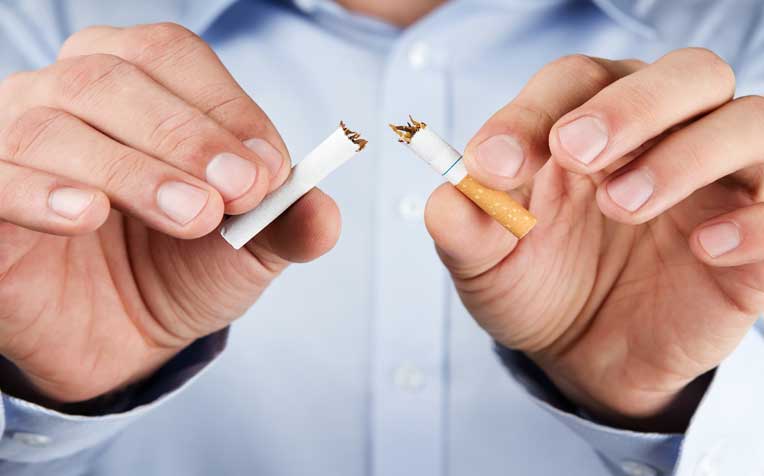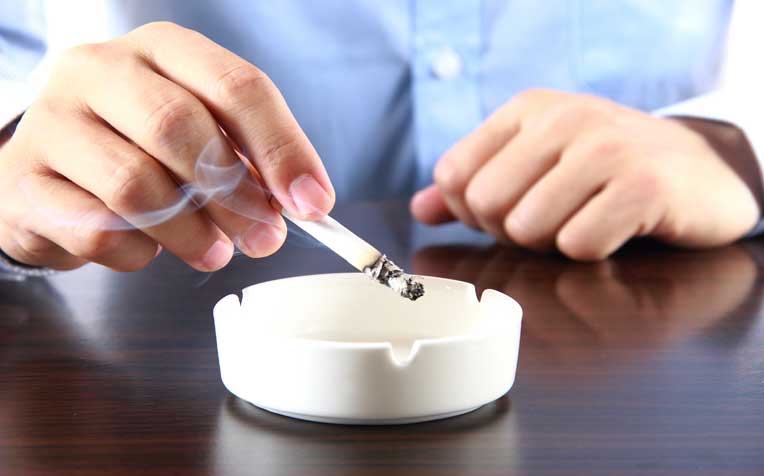
Withdrawal symptoms and side effects are common after quitting smoking, but make healthier lifestyle choices and don't give up.
Quitting smoking is hard, but your body will start to reap the benefits within 24 hours
Thanks to the many years of public education, we all know the ill effects of smoking as well as the numerous statistics available regarding its impact on various illnesses. But why then do we still smoke? Why do we persist in doing something that we know is harmful for us and those around us?
Mark Twain once said, “It is easy to quit smoking. I’ve done it hundreds of times.” The truth of the matter is that quitting for good is not easy at all. Ask smokers and their loved ones.
"Nicotine is very addictive, even more addictive than drugs. It has a physiological, behavioural and psychological hold on you," says Ms Evelyn Boon, Senior Principal Psychologist, from the Department of Psychiatry at Singapore General Hospital (SGH), a member of the SingHealth group. There are physical signs of nicotine dependency like withdrawal symptoms for some smokers (in particular moderate to heavy smokers).
Some people smoke because they use smoking as an emotional crutch – they smoke when they are stressed, upset or angry. Yet there are others who smoke simply as a habit or routine, either after meals or after going to the toilet in the morning.
Quitting smoking does sound very daunting, doesn’t it? The reality is that it is possible to quit, and it is never too late to do so even if you have been smoking for a very long time. Within 24 hours of quitting, your body will start to reap the benefits. You will breathe better; your sense of smell and taste will improve. Contrary to what old wives’ tales say, you will not be worse off if you quit smoking!
However, you will experience, during the first two weeks at least, some withdrawal symptoms. This is natural as your body is adapting to a non-smoking condition. But don’t give up.
Quitting smoking: withdrawal symptoms and side effects
Here are some withdrawal symptoms and side effects to watch out for:
- Physical withdrawal symptoms – coughing, flu-like symptoms, constipation, headaches
- Psychological withdrawal symptoms – mood swings, increased irritability, low mood
- Potential weight gain – be wary of food cravings. You might eat more as your taste buds improve and food tastes better. Take healthier snacks or fruits instead, and drink plenty of water. Start exercising as well; this will help you cope.
Tips to help you quit smoking:
- Identify what sort of smoker you are – habitual/behavioural, psychological, physical. This will help you choose aids like nicotine patches (if your addiction is physical and if you are a heavy smoker), gum/lozenges, etc.
- If you are a behavioural smoker who likes the hand-to-mouth action, perhaps a nicotine inhaler might be best for you.
- Set a quit date (choose a date that is important to you or easy to remember, e.g. 1st March).
- You could choose the decreasing method or go cold turkey (stop at once).
- Do NOT buy more than one packet of cigarettes to “stand by” at home or at work.
- On your quit date, clear your home of ashtrays and other smoking paraphernalia, like lighters.
- Start a piggy bank – “fine” yourself $10 (the estimated price of a pack of cigarettes) and put the money in the piggy bank each day, or each time, you smoke. If you have not smoked for a whole month, you can use the money to reward yourself!
Family members can help too, by:
- Being aware of the withdrawal symptoms, especially the crankiness!
- Be understanding and help by stocking up on fruits and healthy snacks.
- If another family member is a smoker, you can help each other by quitting together.
- If another family member is a smoker, they can refrain from smoking in your presence. This will help them too.
There are now many options for you to quit smoking. You can call the Health Promotion Board’s Quit Smoking helpline (1-800-438-2000) to speak to a Quit Advisor. Or get the “I Quit” mobile app. You can also seek professional counselling (Smoking Cessation Clinics, see below)) and use pharmacological aids (nicotine replacement therapy in the form of patches, gum, lozenges).
Smoking is a hard habit to kick! So good luck and don’t give up!
The Smoking Cessation Programme offered by the Department of Respiratory and Critical Care Medicine, Singapore General Hospital (SGH), a member of the SingHealth group, aims to help smokers to stop smoking and lead a new, healthier smoke-free life. Call 6321 4377.
Ref: Q15
Contributed by

















